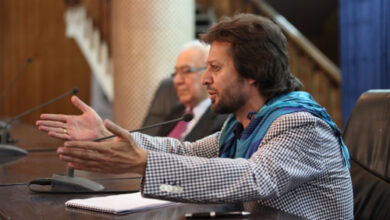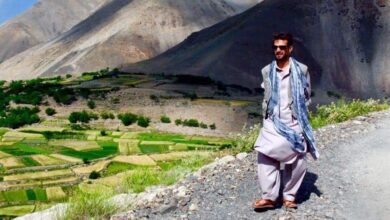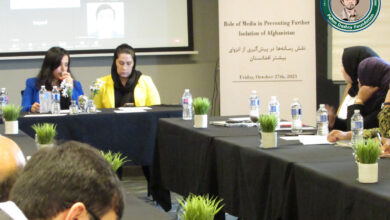
Date: August 15, 2023
As it was predicted, after the occupation of Kabul, the Taliban, in complete opposition to their commitments and promises in the Doha negotiations, did not abide by any human rights values, and by gaining power, they caused the most damage to human rights, women’s natural rights and values. freedom of expression and access to information.
In the last two years, the Taliban have closed schools, universities, and educational institutions for girls and women, deprived them of their right to work, and even prevented them from going out of the house, as in the first period of their rule, and made them face vital threats.
In the first step, the Taliban dissolved the Information Access Commission and suspended the Public Media Law, which resulted in the work of the media and journalists being in a completely uncertain state.
According to Reporters Without Borders, out of 12,000 journalists and media workers in Afghanistan, two-thirds or about 8,000 of them have lost their jobs and 80% of female journalists have left the profession. This organization adds that 43% of Afghan media disappeared from the work scene and from August to December 2021, including 10,780 active employees in newsrooms, only 4,360 people remained during the first three months of Taliban rule.
Along with the dozens of events that have occurred in the past two years in an organized manner against the standards of freedom of expression, the Taliban have recently taken actions that show any interaction and expectations of the international community from them are more than a waste of time and a waste of achievements of the people of Afghanistan.
Although many media outlets are facing the risk of non-operation due to security and financial problems, in Nangarhar, the Taliban have closed “Hamisha Bahar” radio and television and by raiding the offices of “Nen” and “Javanan” radios, they have also prevented them from operating.
While the representatives of the international community met with them in the name of direct interaction and with the illusion of a change in the strict policies of the Taliban, and according to Sigar, the United States of America has provided financial aid to the Taliban for about 2.25 billion dollars in the last two years. since that, several journalists and human rights activists have been imprisoned by the Taliban and there is no news about their fate. In their recent actions, the Taliban arrested Vahdat Abdali, a reporter and photographer in Ghazni, Faqir Mohammad Faqirzai, the president, and Jan Agha Saleh, a reporter for Kilid Radio in Nangarhar, Habib Sarab, a reporter for Ariana News in Paktia, and Haseeb Hassan, a reporter for Salam Watandar in Kunduz. In the same way, three other journalists, Najib Faryad, Ariana News reporter, Hatif Arain, and Sibghatullah Turan, local journalists, have been arrested while preparing a report on a fire incident in Balkh province.
Shahid Fahim Dashti Foundation, by condemning the anti-human policies of the Taliban, which in some areas of the country have reached crimes against humanity, expects the international community to put pressure on the Taliban and their supporters on the second anniversary of the occupation of Kabul. to pave the way for democracy in the country as well as provide the people’s natural rights and freedoms, and considering the nature of the Taliban in the past period, do not hunt of conspiracies and the half-hearted promises of the Taliban regarding the positive change that will not be fulfilled.
Shahid Fahim Dashti Foundation considers any interaction without practical measures by the Taliban to be wishful thinking and optimistic and expects the international organizations residing in Kabul, including the United Nations Office, to exert the necessary pressure for the freedom of journalists and activists. The human rights of those who are in the captivity of the Taliban, and to prevent the complete collapse of freedom of speech and media that our society is facing.
Other languages:




